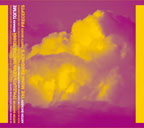The Tibetan monk, yogi and philosopher Gyalsey Thogmey Zangpo (1285-1369) was renowned for his vast knowledge and high spiritual realizations. He wrote more than a hundred texts clarifying the teachings of the Buddha and spent many years in retreats and meditation. When disciples listened to him, tears streamed down their faces.
Resolving to compose a brief and lucid teaching that could be understood by the unsophisticated layman, he composed The Thirty-Seven Bodhisattva Practices, a didactic poem setting forth the main tenets of the Bodhisattva Path—the essence of the Mahayana teachings. This poem, written in the fourteenth century, remains one of the best known and most popular works of Tibetan Buddhist literature. For almost seven hundred years it has been a source of inspiration for those entering the path of the Dharma. These teachings are truly timeless and universal.
Alexander Nariniani. From the preface to the Russian edition of The Thirty-Seven Bodhisattva Practices
The Sanskrit word bodhisattva refers to a person who sees the relief of others’ suffering as the sole meaning of human existence. A bodhisattva is a human being who has achieved such a high degree of control over mind and body that he can easily do what an ordinary person can only dream of. It isn’t any more difficult for a bodhisattva to transport himself between distant points in time and space than it is to switch TV channels. What is more, he is able to escape from the cycle of rebirth that is called samsara. And that’s exactly what all such people would do, regarding it as the triumphant end of their spiritual path, if they didn’t have boundless compassion. A bodhisattva finds it impossible to enjoy the bliss of a personal nirvana while billions of creatures are still being born, suffering, and dying. Instead of going “up” immediately upon his physical death, a bodhisattva does the opposite: he “falls down” to samsara, being born again and again and choosing the times and places for rebirth that will bring maximum benefit to other beings.
From a “normal” perspective (that of an egoist who lives only for his or her own welfare), a bodhisattva’s way of life, motivation, and deeds looks a lot like insanity. Some, however, make this model of behavior their compass in life. No, it is not their dream to master unaided flight, read minds, predict the future, or perform other “commercial miracles”. They simply have the energy of compassion that is dormant in everyone’s heart. One day this energy awakens, and a person finds himself or herself on the bodhisattva path. Thogmey Zangpo addresses his precepts to these people.
When I first thought about writing a composition based on The Thirty-Seven Bodhisattva Practices, I decided to have a recording of the complete poem performed in traditional manner, and use this recording as a vocal track. In the Tibetan tradition, sacred texts are chanted without any written notation, and the principles of chanting are transmitted from guru to disciple. I asked Lama Tsering Dondrub, who has been giving a series of teachings in Moscow with detailed line-by-line commentaries on this text, to do the studio recording. He kindly agreed, and his performance—marvelously expressive and radiant with energy—became the central element of my “musical commentary”.
In my composition, each verse is preceded by an instrumental passage. These instrumental sections have their own line of development, independent from that of the verses. For this reason, the music runs in two parallel layers: the first is a meditative sound structure that does not discriminate between happiness and suffering, joy and sorrow; the second is a distant echo of early Seventies rock music in which all these human emotions are condensed to a single point and amplified like a ray of sunlight by a magnifying glass. The two layers intersect time and again, because the perfection attained by a bodhisattva in his meditation is not a goal but a jumping-off point for a leap into the abyss called “life”—repeated over and over until samsara is emptied.
Anton Batagov, May 2005
(English translation by A.B. edited by Carl Copeland)


